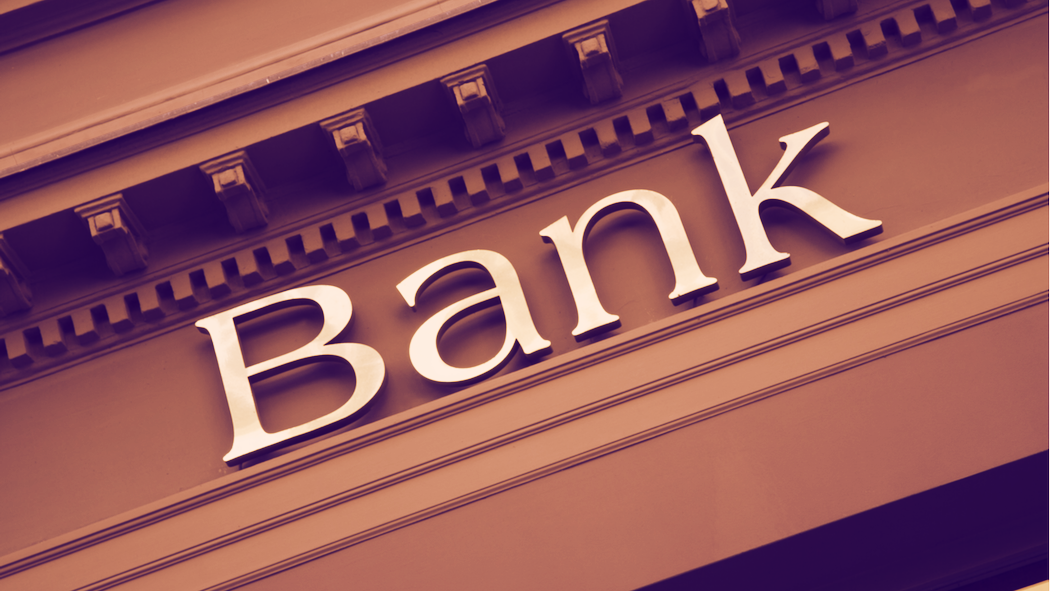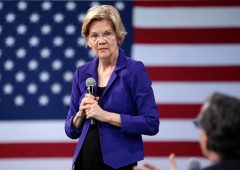Wall Street Banks Post Strong Profits, But Quietly Brace for Turbulence Ahead
16.04.2025 20:00 3 min. read Alexander Stefanov
As trade tensions rise and economic signals grow harder to read, America’s largest banks are posting quarterly results that reflect both resilience and caution.
Behind the strong headline numbers lies a deeper story about shifting sentiment, mounting uncertainty, and quiet preparation for what could be a turbulent year ahead.
Amid a backdrop of market jitters sparked by President Trump’s tariff push, top financial institutions—JPMorgan, Goldman Sachs, Bank of America, Morgan Stanley, and Citigroup—reported solid first-quarter profits. Volatile markets, driven by the initial rollout of tariffs in February and March, delivered an unexpected windfall in trading revenues, which surged 17% to surpass $36 billion. Collectively, the group pulled in $35 billion in profit, marking a notable 13% year-over-year increase.
Consumers, for now, continue to spend, and businesses appear stable, offering some reassurance that the economy hasn’t buckled under early trade pressures. Still, none of the major Wall Street players provided updated earnings forecasts, reflecting a shared unease about what lies ahead—particularly following Trump’s early April tariff escalation, which triggered a steep sell-off in both stocks and bonds after the quarter had closed.
While some analysts expressed surprise at the strength of the results, they cautioned that much of the financial sector’s performance hinges on future policy clarity. Wells Fargo’s Mike Mayo observed that the current economic headwinds could still be weathered—provided the administration moves swiftly to deliver promised regulatory relief for banks.
Yet optimism wasn’t universal. Goldman Sachs chief David Solomon warned that recession risk is growing, while JPMorgan’s Jamie Dimon said he expects significant turbulence, with a downturn looking increasingly likely. In such a scenario, both earnings and share prices could take a hit.
At the same time, voices like Citigroup’s Jane Fraser and Bank of America’s Brian Moynihan struck a more confident tone. Fraser pointed to the enduring strength of the U.S. economy, even in the face of structural shifts. Moynihan, too, highlighted ongoing consumer momentum and corporate profitability, though he admitted the outlook is murky. “Nobody has perfect visibility,” he noted.
The investment banking divisions, surprisingly, didn’t falter. Despite expectations of a slowdown, several firms posted higher revenues in the segment. While some deals have been delayed, Morgan Stanley’s Ted Pick insisted the mood is one of temporary caution rather than long-term retrenchment. “This is a pause—not a collapse,” he said.
Still, actions speak louder than earnings calls. In preparation for potential economic stress, JPMorgan, BofA, Citi, and Wells Fargo set aside $8.4 billion in provisions for possible loan losses—up nearly a third from a year earlier. The message: things are steady now, but no one’s betting on calm waters ahead.
As Ken Leon of CFRA Research put it, “We’re not out of the woods. Things will stay bumpy—and that wears on everyone.”
-
1
U.S. PCE Inflation Rises for First Time Since February, Fed Rate Cut Likely Delayed
27.06.2025 18:00 1 min. read -
2
Key U.S. Economic Events to Watch Next Week
06.07.2025 19:00 2 min. read -
3
Gold Beats U.S. Stock Market Over 25 Years, Even With Dividends Included
13.07.2025 15:00 1 min. read -
4
U.S. Announces Sweeping New Tariffs on 30+ Countries
12.07.2025 16:30 2 min. read -
5
US Inflation Heats Up in June, Fueling Uncertainty Around Fed Cuts
15.07.2025 16:15 2 min. read
U.S. Public Pension Giant Boosts Palantir and Strategy Holdings in Q2
According to a report by Barron’s, the Ohio Public Employees Retirement System (OPERS) made notable adjustments to its portfolio in Q2 2025, significantly increasing exposure to Palantir and Strategy while cutting back on Lyft.
Key Crypto Events to Watch in the Next Months
As crypto markets gain momentum heading into the second half of 2025, a series of pivotal regulatory and macroeconomic events are poised to shape sentiment, liquidity, and price action across the space.
Here is Why Stablecoins Are Booming, According to Tether CEO
In a recent interview with Bankless, Tether CEO Paolo Ardoino shed light on the growing adoption of stablecoins like USDT, linking their rise to global economic instability and shifting generational dynamics.
U.S. Dollar Comes Onchain as GENIUS Act Ushers in Digital Era
In a statement that marks a major policy shift, U.S. Treasury Secretary Scott Bessent confirmed that blockchain technologies will play a central role in the future of American payments, with the U.S. dollar officially moving “onchain.”
-
1
U.S. PCE Inflation Rises for First Time Since February, Fed Rate Cut Likely Delayed
27.06.2025 18:00 1 min. read -
2
Key U.S. Economic Events to Watch Next Week
06.07.2025 19:00 2 min. read -
3
Gold Beats U.S. Stock Market Over 25 Years, Even With Dividends Included
13.07.2025 15:00 1 min. read -
4
U.S. Announces Sweeping New Tariffs on 30+ Countries
12.07.2025 16:30 2 min. read -
5
US Inflation Heats Up in June, Fueling Uncertainty Around Fed Cuts
15.07.2025 16:15 2 min. read


